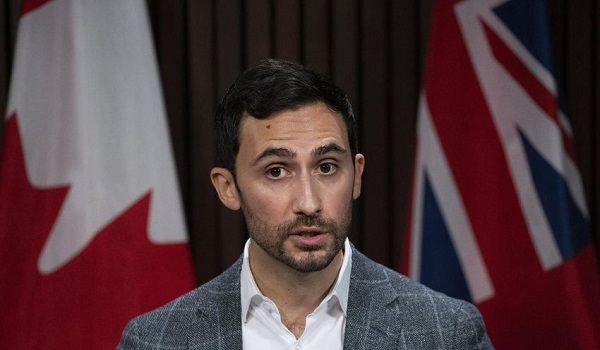Economists are deeply concerned about Canada’s future – and investors are also observing
Scotiabank head of capital markets economics Derek Holt set off a Bay Street firestorm earlier this month by writing “I’m deeply worried about public policy in my country.” BMO chief economist Doug Porter and National Bank strategist Stéfane Marion joined the grim chorus over the weekend.
Each economist voiced concerns about domestic productivity – essentially output per worker – as 2023 marked the third annual consecutive decline for the first time in at least 40 years. Mr. Marion cited noble laureate Paul Krugman, who wrote that “A country’s ability to improve its standard of living over time depends almost entirely on its ability to raise its output per worker.” Canadians’ standard of living is at risk as the productivity slump continues.
Rising government payrolls, which are historically correlated with weaker productivity, explain part of the slump. Mr. Porter noted that Canadian public payrolls have increased 17 per cent in the last six years and this includes a 30 per cent jump in federal employment.
Similarly, Mr. Holt bemoaned the government control or influence of child care, dental care and pharmacare. His reaction to the trend was blunt as he wrote, “Do we get better quality outcomes in state-run health and education sectors? Tried visiting an ER lately? ‘nough said.”
Mr. Marion emphasizes Canada’s declining competitiveness by noting portfolio investment flows. In 2023, Canadians bought $53-billion in foreign securities while foreign investors bought $32-billion of Canadian securities, the smallest amount in 16 years. At the same time, foreign investors sold a record $48.7-billion in Canadian equities.
They do not call economics the dismal science for nothing.
Investors that believe the current productivity and growth malaise will continue for the mid- and long term can simply avoid domestic securities, even if it increases the risk of currency mismatch issues (obligations in Canadian dollars with most investments in global currencies).
Public policy can definitely help the economy get on track and more targeted investment will be required. I’m not, on the other hand, convinced things are fully as dire as the three economists indicate. Yes, wages are rising and this negatively affects productivity but, after decades of globalization and automation, they had significant room to increase.
In addition, the record outflow of foreign investment was almost certainly focused on underperforming domestic bank stocks. This trend should reverse as rates stop rising and credit conditions stabilize.
Canada’s flagging competitiveness is real and verifiable and should not be taken lightly. But with ample advantages – a well-educated work force and commodity wealth among them – we should be able to meet the economic challenge.
This article was reported by The Globe and Mail















